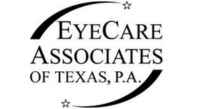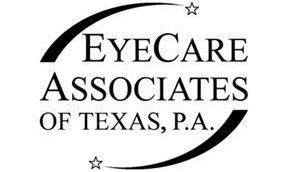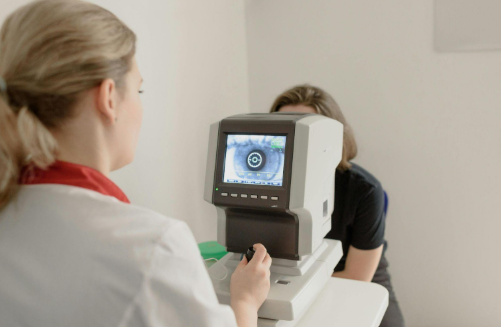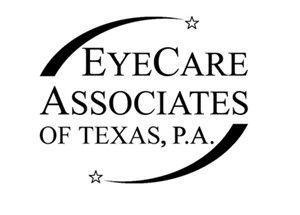Article
Eye Care Tips for Spring Cleaning While Avoiding Dust Chemicals and Allergens
Spring cleaning is a great way to refresh your home, but it can also expose your eyes to dust, harsh chemicals, and allergens that cause irritation or discomfort. Whether you have allergies, wear contact lenses, or are simply sensitive to airborne particles, taking steps to protect your eyes during cleaning is essential. With a few precautions, you can enjoy a cleaner home without compromising your eye health.
Here’s how to keep your eyes safe while tackling your spring cleaning checklist.
10 Essential Eye Care Tips for Spring Cleaning
Many household cleaners contain ammonia, bleach, or strong fragrances that can irritate the eyes. Wearing protective eyewear is one of the simplest and most effective ways to shield your eyes from airborne irritants and chemical splashes. Regular prescription glasses or sunglasses are insufficient; safety goggles or wraparound protective glasses offer the best coverage.
Some essential tips you might need while you tackle your cleaning tasks include:
Wear Protective Eyewear
One of the best ways to shield your eyes from irritants is to wear safety glasses or goggles. These provide a barrier against dust, debris, and cleaning sprays that can cause discomfort or even injury. If you wear prescription glasses, consider using wraparound safety glasses for full protection.
This is especially important when dusting high areas, vacuuming carpets, or using strong chemical cleaners.
Hypoallergenic and Non-Toxic Cleaners
Opt for natural alternatives like vinegar, baking soda, or lemon juice, which are effective yet gentle. If you prefer commercial cleaners, look for products labeled as non-toxic, hypoallergenic, or fragrance-free to minimize the risk of irritation. No matter what you use, always avoid touching your eyes until you have thoroughly washed your hands.
Improve Indoor Air Quality
Proper ventilation is key to reducing airborne irritants and chemical fumes. Open windows and doors while cleaning to allow fresh air to circulate, and use an exhaust fan or an air purifier to help filter out dust and allergens.
If you're using strong cleaning agents, take extra care to avoid inhaling fumes, as they can irritate both your eyes and respiratory system.
Avoid Rubbing Your Eyes
During cleaning, it's easy to rub your eyes without thinking, which can transfer dust, chemicals, and bacteria directly onto your delicate eye tissue. To minimize this risk:
- Wash your hands frequently, especially after handling cleaning supplies.
- Use a clean tissue or cloth to wipe sweat from your face instead of your hands.
- If something gets into your eye, rinse it with cool, clean water instead of rubbing.
Use Microfiber Cloths for Dusting
Feather dusters and dry rags often scatter dust into the air, increasing the risk of eye irritation. Instead, use microfiber cloths, which trap dust and allergens more effectively. Slightly dampening the cloth before dusting can further reduce airborne particles and limit the need for chemical sprays.
Wear a Face Mask When Necessary
If you have allergies or are sensitive to dust and cleaning chemicals, wearing a face mask can help minimize exposure. A simple disposable or reusable cloth mask can prevent dust from irritating your sinuses and eyes while also reducing inhalation of strong fumes.
Clean in Sections to Reduce Exposure
Instead of tackling your entire home in one day, break up your cleaning into manageable sections. This approach reduces prolonged exposure to irritants and gives your eyes time to recover. Consider cleaning one room at a time and taking short breaks to step outside or rinse your eyes with cool water.
Keep Eye Drops Handy
Choose preservative-free drops if you have sensitive eyes, or allergy relief drops if pollen is a concern. If you wear contact lenses, consider switching to glasses while cleaning to prevent debris from getting trapped under your lenses.
Rubbing your eyes can worsen irritation and introduce allergens directly to the ocular surface. Additionally, if your allergies flare up during cleaning, over-the-counter antihistamines can help reduce inflammation.
Wash Your Face and Eyelashes After Cleaning
Dust and allergens can settle on your skin and eyelashes, leading to irritation long after cleaning is done. Rinse your face thoroughly with mild soap and water, and gently clean your eyelids and eyelashes to remove any residue. Avoid using harsh facial cleansers that could further irritate your eyes.
Maintain a Clean Indoor Environment
Your home’s HVAC system plays a crucial role in filtering out airborne particles. Replace air filters every 1–3 months, especially in the spring when allergens are high. Using HEPA filters in your HVAC system and vacuum cleaner can help trap fine dust and allergens, reducing the likelihood of eye irritation.
When to Seek Medical Attention for Eye Irritation
While minor eye irritation from cleaning is common, some symptoms indicate a need for medical attention. If you experience any of the following, seek professional eye exams promptly:
Severe or Prolonged Eye Pain
This may indicate chemical burns, corneal abrasions, or serious irritation. Pain that worsens over time or does not subside after rinsing may signal deeper damage and could lead to long-term complications if untreated.
Blurry Vision That Doesn’t Improve
If vision remains unclear after flushing your eyes, it could be a sign of deeper damage. Blurry vision accompanied by halos around lights may suggest corneal swelling. In some cases, prolonged blurriness can indicate nerve involvement, which requires immediate evaluation.
Excessive Tearing or Mucus Discharge
If tears become thick or yellow, it could indicate bacterial conjunctivitis. Persistent tearing combined with itching and redness may be a sign of chemical conjunctivitis or an environmental allergy. If discharge causes your eyelids to stick together, especially in the morning, seek medical attention.
Swelling or Redness That Worsens
Swelling that extends beyond the eyelids may suggest an underlying infection, such as cellulitis. If redness spreads across the whites of the eyes or is accompanied by warmth and tenderness, it could indicate a more serious inflammatory condition.
Light Sensitivity
If your eyes become unusually sensitive to light, it may be due to corneal irritation or damage. This symptom can also suggest inflammation of the iris (iritis), which requires prompt treatment. Light sensitivity that causes discomfort indoors or at night could be a sign of photokeratitis, a condition caused by chemical exposure or prolonged irritation.
Gritty or Foreign Body Sensation
If flushing with clean water does not resolve the sensation, microscopic particles may still be present and could lead to corneal abrasions. Persistent grittiness may also be an early sign of dry eye disease, worsening with exposure to cleaning chemicals.
Difficulty Keeping Your Eyes Open
This can occur due to eyelid inflammation (blepharitis) or early signs of corneal damage. Struggling to keep your eyes open in normal lighting conditions may suggest neurological involvement. If your eyes begin watering excessively when trying to focus, this could be a sign of an ocular migraine or temporary nerve irritation.
Headache or Dizziness
Prolonged exposure to ammonia or bleach can trigger eye strain, leading to tension headaches. If dizziness occurs alongside visual disturbances, it could indicate a more serious reaction to airborne irritants. Chronic exposure to cleaning agents without ventilation can lead to long-term neurological effects.
Spring cleaning doesn’t have to come at the expense of your eye health. Our professionals at
Eyecare Associates of Texas, P.A., can help you with personalized eye care treatment and tips to maintain your eye health.
Contact us
today!
share this
Related Articles
Related Articles





